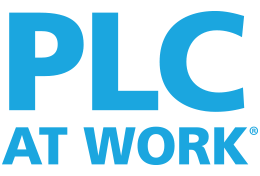DEMOGRAPHICS
Tongue River Elementary is a public school located in the rural setting of Ranchester, Wyoming, a farming and ranching community. The town has a population of 974, according to 2017 census data, and sits just south of the Montana state line between the city of Sheridan and the Big Horn Mountains.
Source: RanchesterWyoming.com
245 Students
- 28% Free and reduced lunch
- 2.1% English learners
- 14.2% Special education
Tongue River Elementary School's CHALLENGE
Although Tongue River Elementary School had collaborative team meetings in place for several years, teachers were not yet working as effective teams in a professional learning community. They were not laser focused on the four critical questions essential to learning for all:
- What do we want all students to know and be able to do?
- How will we know if they learn it?
- How will we respond when some students do not learn?
- How will we extend the learning for students who are already proficient?
Determined to transform Tongue River into a high-functioning PLC, principal Annie Griffin attended a Professional Learning Communities at Work® Institute and returned to her school with actionable strategies for improving collaborative team time.
“At Tongue River, we believe that our teachers will always be our best resource, and the PLC process has allowed them to use data to make instructional decisions based on what is best for our unique students.”
IMPLEMENTATION
The first step was to create functional agendas and norms based on the four critical questions. It soon became clear that teachers were receptive to this and eager to learn more about the PLC process and improve their teams. Griffin attended scheduled meetings and worked with the teams to build their understanding. Special education staff and specialists also attended meetings. It truly was a schoolwide collaborative effort. Teams tackled challenging work, such as looking at common formative assessments, determining essentials, building proficiency scales, and examining data to guide instruction.
When a state-funded grant presented the opportunity for Tongue River teachers to attend regular Solution Tree professional development, school leadership seized the moment. A guiding coalition was formed to create and lead professional development and support teacher understanding of the PLC process.
Tongue River faculty stepped up to this job-embedded professional learning experience and grew to become high functioning and to look at data prescriptively. Daily Intervention and Extension time was built into the schedule. “The expectation schoolwide was that we would have all hands on deck to be sure the instruction our students receive during core, as well as during Intervention and Extension (I/E), is tailored to their unique needs based on data,” explains Griffin.
Teacher teams began to skillfully utilize common district and formative assessments to guide instruction and planning by grade levels. Teachers began to share essential expectations with parents. In turn, feedback from families spoke volumes on the value of having that insight on their children’s instruction and expectations. SMART goals are now set based on grade-level essentials. When goals are achieved, all students celebrate as a collective.
“We know the PLC process is not just a meeting, but rather an embedded culture to improve learning,” Griffin says. Teachers communicate with their grade-level cohort, as well as other specialists, about students’ strengths and weaknesses. They use evidence to foster continuous school improvement. This time is vital to brainstorm different approaches and teaching strategies together as a team.
“At Tongue River, we believe that our teachers will always be our best resource, and the PLC process has allowed them to use data to make instructional decisions based on what is best for our unique students. Standards-based grading practices, along with the PLC process, remind us that we do not give up on any student. We work until they have achieved mastery.”
The staff at Tongue River commits to high levels of learning from the very start of a student’s education. Project GIFT, a literacy program created by Griffin, exposes local preschoolers to a variety of books. Collaboration with early childhood program leaders, childhood screening efforts, and multiple conversations among teachers and the community ensure there is a variety of academic levels in the kindergarten classroom and that children who need extra time and support receive the right resources.
The collaborative process established at Tongue River has been crucial to navigating the very difficult times of the pandemic and supporting continuous school improvement. The school is now known for their PLC process. They have facilitated on-site visits with a neighboring school and offer support through conversations, document sharing, and observations. “We are happy to share what we have learned,” says Griffin. “We believe it is best practice.”
RESULTS
In just their second year of working together as a functioning PLC at Work school, Tongue River was named a National Blue Ribbon School by the US Department of Education. In other accomplishments, discipline referrals decreased from 256 office visits to 63 in three years.
A study of one cohort of students who qualified for free and reduced lunch showed continuous improvement in English and mathematics from third through fifth grade (see graph below). Percent proficiency increased 29 percent in English and 284 percent in math.
Percent proficiency also improved for students in fifth grade when compared over the course of three years. English proficiency rose 53 percent over the course of three years, and mathematics proficiency rose 63 percent.
Percentage of Students Meeting or Exceeding Proficiency in English and Math Who Qualify for Free or Reduced‑Price Lunch
WHY PLC AT WORK®?
Professional learning communities (PLCs) are schools that empower educators to work collaboratively in recurring cycles of collective inquiry and action research to achieve better results for the students they serve.



